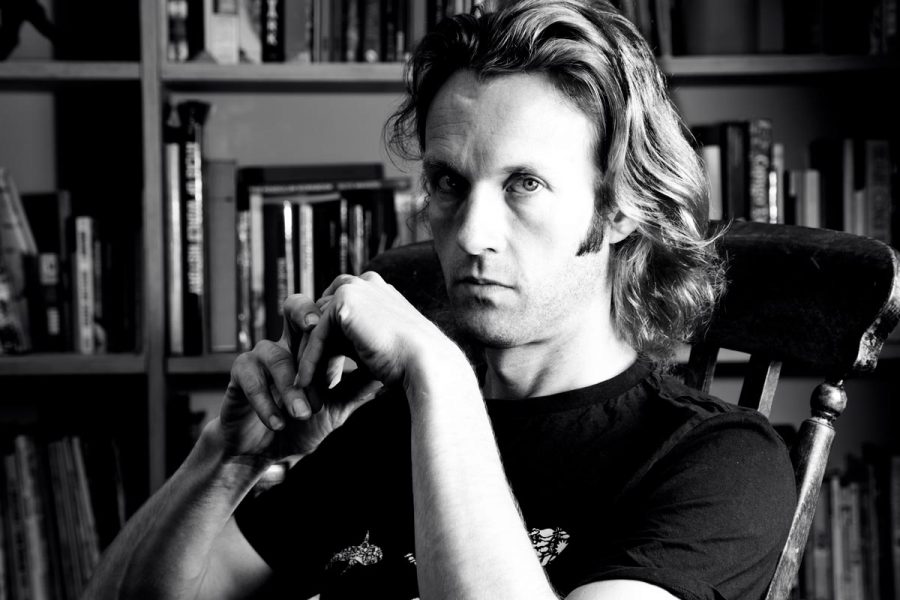Musical Portraits: Iain Bell
January 2016
Words by
Emer Nestor
Photos by
Frances Marshall
The name of London-born composer Iain Bell is making the world of contemporary opera sit up and take note. Since his first opera, A Harlot’ s Progress, debuted to rave reviews in 2013, Bell went on to win commissions for a further two operas – A Christmas Carol and In Parenthesis.
His innate passion for story-telling and natural understanding of the human voice has made the young Londoner a favourite among some of the world’s foremost singers, leading to performances of his music at venues such as Wigmore Hall, Carnegie Hall and the Munich Opera Festival. The pool of subjects from which Bell draws inspiration for the programmes of his orchestral and chamber works narrates a deep love of literature and history. We chat to the busy Bell, who is currently booked up to 2020 with an array of exciting projects, about finding his composition voice, the craft of story telling, his musical guilty pleasures, London, chocolate, forthcoming premieres and new opera commissions.
...my own emotional response to scenarios/texts, as well as a visceral response to what sounds were making me 'tick' whilst in the act of composing."

Let’s start at the very beginning — when did the desire to compose first take hold?
That’s a very good place to start! When I started school in London at the age of four, we all learned the descant recorder (squeak), and I quickly started writing little ditties for it, as well as playing things by ear. Even though I am not from a classical-musical family, my parents noticed what I was up to and bought me a small two-octave keyboard, which was soon replaced by a four-octave one, then a piano. As each instrument grew in size, so did the scope of my composition, and fingers crossed, the quality too!
How did the academic side of your musical development shape your current composition voice?
The academic side gave me a great grounding in harmony, counterpoint, score analysis, orchestration etc…. These tools were the building blocks of my music making. In terms of shaping my voice, I think that was a far more personal journey, moulded by the music and composers I admired when growing up…and my own emotional response to scenarios/texts, as well as a visceral response to what sounds were making me ‘tick’ whilst in the act of composing.
For you, which comes first: the programme, the commission, the libretto, or the music?
This has been different in each of the operas I have been working on, but the composing is always the final process.
With A Harlot’s Progress, Diana Damrau and I realised that we wanted to do an opera together, having done a great deal beforehand, and I suggested basing it on the Hogarth pictures. Once she agreed to play a down-and-out eighteenth-century prostitute (!), I then approached Peter Ackroyd about penning the libretto. The team was in place, so we reached out to Vienna who agreed to commission the work.
With A Christmas Carol, I met with Patrick Summers of Houston Grand Opera who asked for commission suggestions from me and I suggested the Dickens. He almost immediately agreed to commission it, which got the ball rolling.
For In Parenthesis, I had already reached out to David Pountney of Welsh National Opera about my work and when we met, having listened to other pieces of mine, he suggested the commission to me. The libretto and directorial teams were already in place by then.
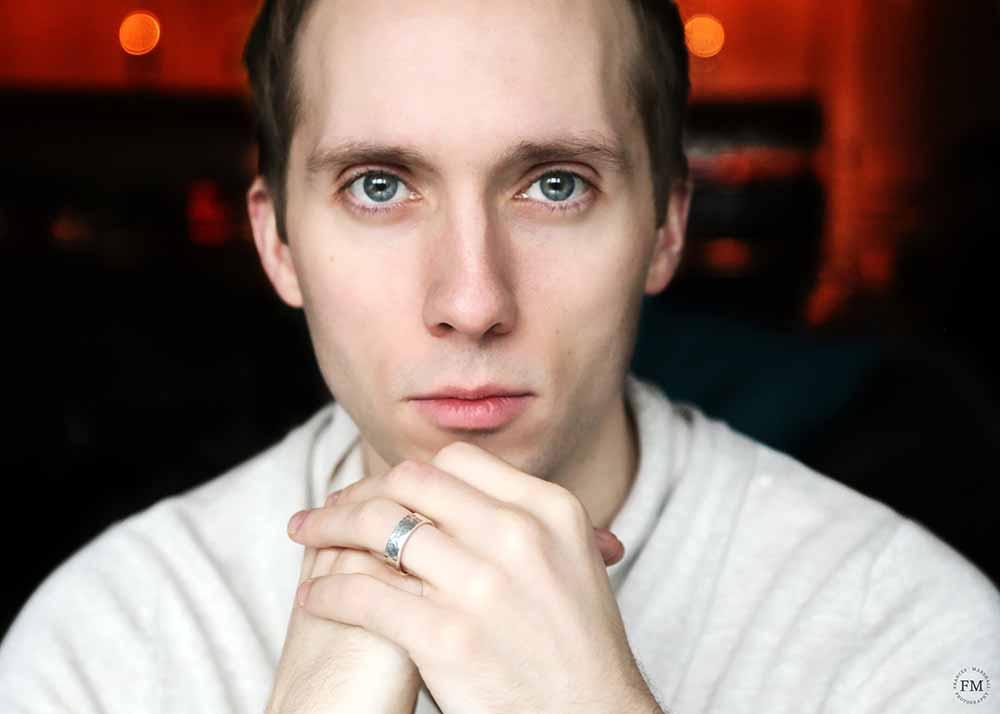

How do you go about choosing a subject source for your operas — does the commission restrict the pool of programmes from which you draw musical inspiration?
Again, this is different in every scenario; some houses already have a subject in mind, others give you a free rein. I am always drawn to subjects where London is featured prominently, as the city is a huge source of inspiration for me. I feel it is a place with so many stories to tell and I love unlocking them. I am drawn to very complex characters with equally complex personal journeys, which is probably the reason why the lead roles in my operas are such long ‘sings’ in terms of the sheer amount of singing they do!
The world of classical music is constantly evolving in a bid to communicate with new audiences of the fast-paced technology-driven twenty-first century – as a composer of such innovative and imaginative works as A Harlot’s Progress, A Christmas Carol and In Parenthesis, how do you think your operas stand out from the overworked canon of western repertoire?
I am hugely indebted to the Western operatic repertoire, which is crammed full of masterpieces that deserve to be heard again and again, and continue to inspire me. Writing in the early twenty-first century is a huge blessing for all composers, as audiences are open to theatrical experiences and subject matter that would have been a ‘no-no’ even fifty years ago. This means that we, as composers, are now free to delve into a deeper, more raw place than ever before. To me, this is so thrilling.
Your debut opera, A Harlot’s Progress, achieved phenomenal praise from the critical press – how important was your relationship with soprano Diana Damrau in the creation of such a powerful and utterly compelling Moll Hackabout?
Diana was utterly key to the conception of the role of Moll Hackabout. By the time of writing it, I had known her for seven years, writing smaller-scale works for her, being consulted in her repertoire selection and attending her album recordings as a ‘second pair of ears’. This meant that I knew her voice intimately—from her vowel production to her breath control, along with all the full arsenal of virtuoso techniques she has at her disposal…and there are many! With all this, as well as knowing what else she would be singing in the same season as the world premiere, I was able to fashion a role that would vocally fit her like a glove.
Knowing her so well on a personal level meant that I knew what dramatic journey she would enjoy travelling. This was at the front of our minds when Peter Ackroyd and I were devising the scenarios for each scene of the opera.
I am always drawn to subjects where London is featured prominently, as the city is a huge source of inspiration for me."


What kind of Dickens did director and actor Simon Callow (librettist) reveal to you whilst working on A Christmas Carol (2013)?
Dickens is clearly a man of compassion, as can be witnessed in his tireless portrayal of the struggles facing the poor, but Simon really drew my attention to Dickens’ beguiling and wry wit. There are some surreal descriptive moments in the novella, which even by today’s standards remind you that you are dealing with a creative mind and intellect that remains apart from the rest of us mere mortals!
Your understanding and respect for the voice is clearly demonstrated in your music and an array of authentic collaborations with world-class singers — what draws you to this soundscape?
I love telling stories. I love the theatrical environment and everyone involved in bringing these stories to life on stage. When rehearsing, I will spend hours talking with the extras (supers), designers, wig-makers, prompters etc…. Musically, I am entranced by the sound of the trained/classical voice riding above a fully acoustic/non-amplified orchestra in the telling of this story. Creating vocal characters, each with their own distinct sound world and vocal personalities, dressed up in their own orchestral fabric, is one of the most fun parts of it. It is the best toy-box a boy could wish for!
Tell us about your forthcoming opera, In Parenthesis.
In Parenthesis is based on David Jones’ eponymous epic poem (1937), which tells the story of a platoon’s experience of World War One, culminating in the Battle of Mametz Wood (1916). It hones in on Private John Ball who is also a visionary. As an audience, we experience the horror of the trenches, both in the brutal military sense as well as the ethereal, fantasy world of his visions. I can’t tell you how much I enjoyed conveying these two worlds, which eventually collide in the final act—“composerly bliss”!


Do you have a particular process that you follow when writing an orchestral or chamber piece?
Once the commission is agreed, I will then know exactly who/what forces I am writing for, so all that is left are the notes. If it is a piece for voice and orchestra, I will score a very basic vocal draft of the entire work for voice and piano, which I will then orchestrate. If it is for a smaller ensemble, I will write it in full score from the start and make any changes or amendments when it is complete, and I can hear it in context.
In terms of my process, I wake up around 7-ish every morning and head straight to the gym. Once home, I shower and have breakfast and normally start by 9:30. I work around 7 or 8 hours a day, 6 days a week, stopping for meals…when I remember!
Your husband Michael is also heavily involved within the world of theatre and dance; would you ever consider writing for the medium of dance in the future?
Dance is a wonderful form of story telling, so you can bet I’d love to do something balletic one day. I always thought the story of Dorian Gray would make a wonderful ballet (hint-hint!). Michael actually played Dorian in a theatrical adaptation of the book in 2014, which was a thrilling production with a magnificent ensemble cast. The actor, Loz, who played Basil (the painter of the infamous picture) became a wonderful friend to us both and was actually best man at our wedding last year.
When not music-making, what do you like to do for fun in London?
London is the most marvelous place to walk. Michael and I love to walk around the City of London (the ancient centre of the city) at the weekend. The area is deserted, so it feels like you have the streets to yourself. I particularly love the small little streets around Smithfield—they are so evocative of the London of Hogarth or Dickens, which inspires me beyond belief.
I am completely obsessed with chocolate, so am always looking around the chocolate shops for new flavours. I recently had ‘dinner’ at William Curley’s chocolate restaurant in Belgravia, which was utter heaven, and Paul A. Young’s chocolate shop in Camden Passage (a wonderful, old street) is another favourite.
Top 5 guilty pleasures in your iTunes/Spotify library?
1 Body Language album by Kylie Minogue.
2 Boston Pops Orchestral Disney (a symphonic album of Disney hits, of course!).
3 Anything by Malcolm Vaughan (1950s singer)…reminds me of being in an episode of Call the Midwife.
4 Over Christmas I’d be lying if I didn’t say Kristin Chenoweth’s Christmas album featured very heavily.
5 Now That’s What I Call 1990s when I need my pop fix.
What are you most looking forward to in 2016?
Professionally, I can’t wait for the world premieres of In Parenthesis (which will also be streamed online on the Opera Platform) and my cantata, London’s Fatal Fire, which commemorates the 350th anniversary of the Great Fire of London.
In terms of performances, I can’t wait to see the new Tristan and Isolde, directed by Daniel Kramer at ENO, and the revival of Richard Jones’ Il Trittico at the Royal Opera House with the magnificent Ermolena Jaho and Marie McLaughlin.
Michael and I have promised ourselves a summer-sun holiday this year. Having written and premiered three operas for three back-to-back seasons, my summers have largely gone unnoticed but this year will be different; time to recharge the batteries in time to start writing opera number four in August….
While we’re thinking ahead, how far in advance are you booked up?
Well, my fourth opera (which I am ridiculously excited about starting work on) premieres in 2020 and I have just had an opera commission request for 2022, which is the most amazing feeling I can describe. To know I have the chance to continue making music for seven years to come is like all my birthdays and Christmases coming at once!
To know I have the chance to continue making music for seven years to come is like all my birthdays and Christmases coming at once!"

To find out more about Iain Bell and his work see: www.iainbellmusic.com
All content and imagery displayed within this article is subject to copyright.
Share this article


